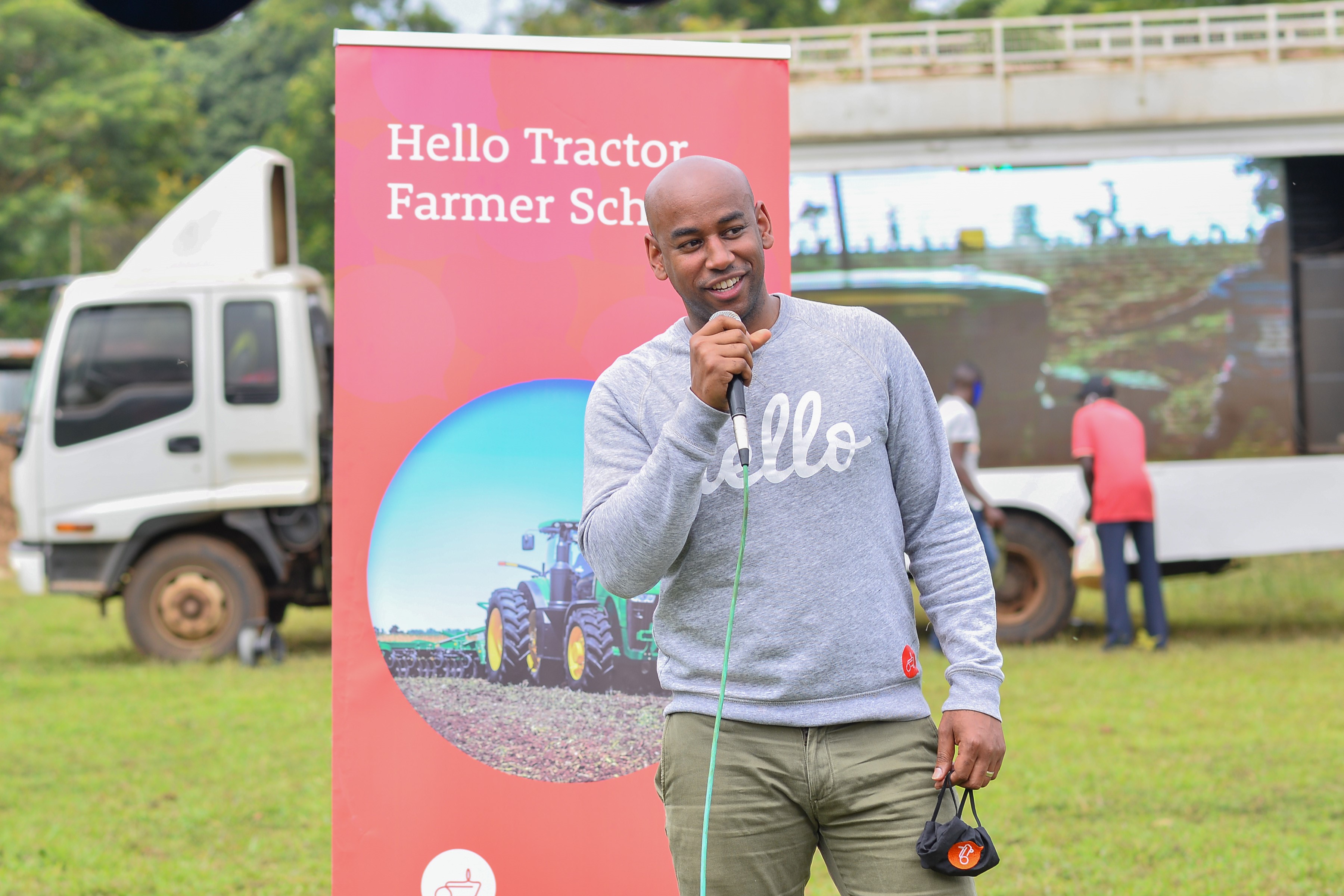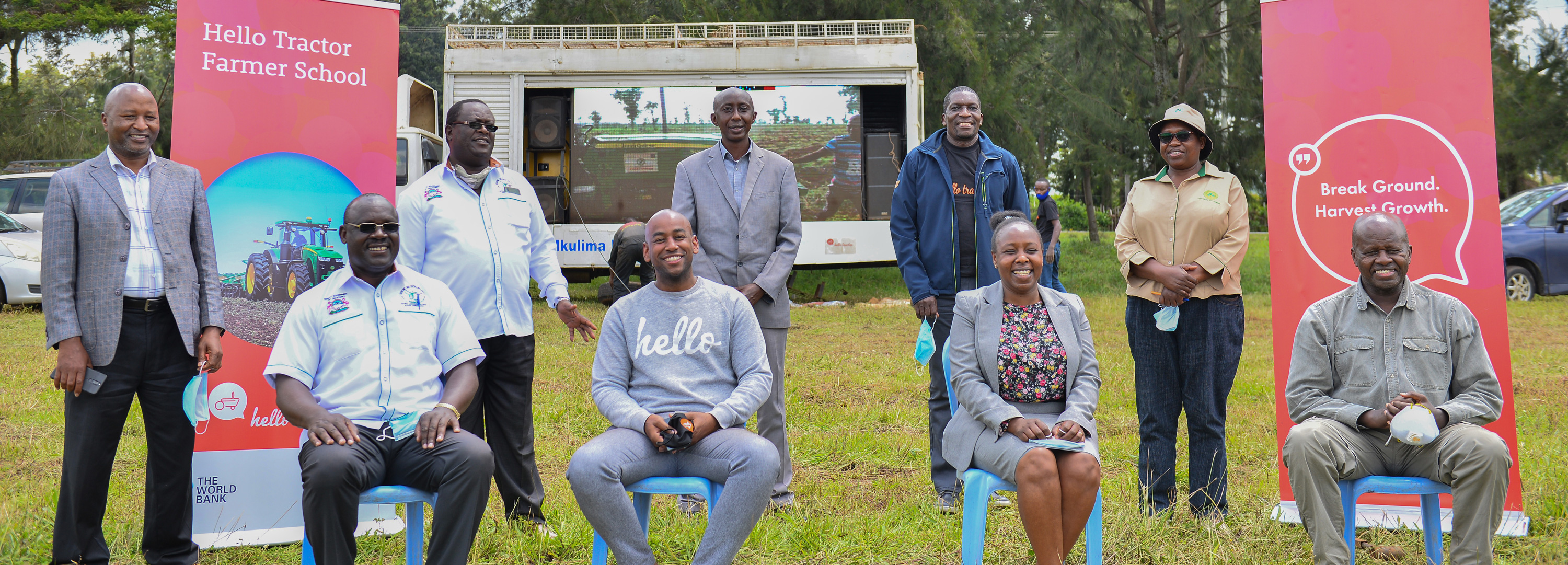
Farming Futures: A former financier is building Uber for tractors
September 29, 2020 | By Kristin KloberdanzIn 2008, amid the financial crisis, Jehiel Oliver got a harsh wake-up call. He was working as an investment banking associate, in Atlanta, Georgia, but wasn’t happy. He wanted to follow his “super hippie” mom’s inspiration and do something more altruistic with his life — but didn’t know how. Then Oliver came down with a painful case of stress-induced shingles.
The day of his diagnosis, he quit and accepted a job as a financial consultant in Afghanistan — admittedly, not the first place that comes to mind when seeking an oasis of calm.
There, Oliver learned about agriculture and how, in many developing nations, farmers are rarely able to earn a living off the land. The idea for Hello Tractor began to crystallize while working with the International Rice Research Institute in the Philippines and saw that a big problem was the lack of funding to buy farming equipment that would make farming more efficient. “I started looking at how to build a financial model [around farm equipment] that could sustain itself,” he says. “And then it blossomed from a hobby to a full-fledged company.”
That company is Hello Tractor, a sort of Uber for tractors. Farmers who have tractors can put them on the app, and people who need tractors can rent them by the hour. Hello Tractor now has 21 employees, 3,000 users on its platform and a half-million farmers serviced across 13 countries in sub-Saharan Africa. It joined Mastercard’s startup engagement program Start Path earlier this year to develop the relationships it needs to continue to scale and unlock new opportunities, including ways to extend credit to grow the number of entrepreneurs who can buy and rent out the machinery.

Oliver launched Hello Tractor in Nigeria, home to one of the largest inventories of uncultivated, rain-fed farmland on Earth but where mechanization is largely untapped. He moved there in 2014 and instantly fell in love with the country. “It’s an electric place, highly entrepreneurial,” he says. “I had a natural attraction to it because this country is really the epicenter for the regional outcome. So goes Nigeria, so goes West Africa.”
Oliver hired a couple of people and quickly got to work. He reached the intimate farming community by befriending a popular agriculture radio host to help him make Hello Tractor a known quantity. And he partnered with engineers to tailor GPS software to keep tabs on the farm equipment.
His initial plan was to start with one low-horsepower tractor he bought from China with the idea that he would buy more as the company grew. “What we found out was that no one gave a crap about our little tractor,” he says. These lower horsepower tractors didn’t have the durability for the rugged Nigerian farming.
Instead, he realized he could sell the GPS device to people who already had tractors so they could rent them out to other farmers and always know where they were.
Oliver created a mobile app that allows people to network for tractor usage. Hello Tractor provides a service in a much-needed informal market among farmers who own tractors but might not be using them, or for people who want to buy a tractor and lend it for extra money.
“Anyone with a cellphone can download and book tractor services on behalf of a farmer who may not be tech savvy, but who is willing to pay a commission to organize these jobs,” Oliver says.
The next step is building ways for people to finance their own tractors and to expand that into Nigeria and Kenya, helping farmers plant as much as 40 times faster, which can increase food and income security for their families and communities.
“It’s exciting and moving forward pretty successfully,” Oliver says. And for an outsider from America who has made incredible agricultural inroads in his adopted continent, Oliver says he feels pretty fortunate: “Trust is fundamental,” he says. “Farmers always buy from the same guy.”
